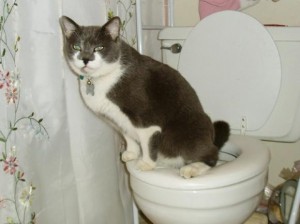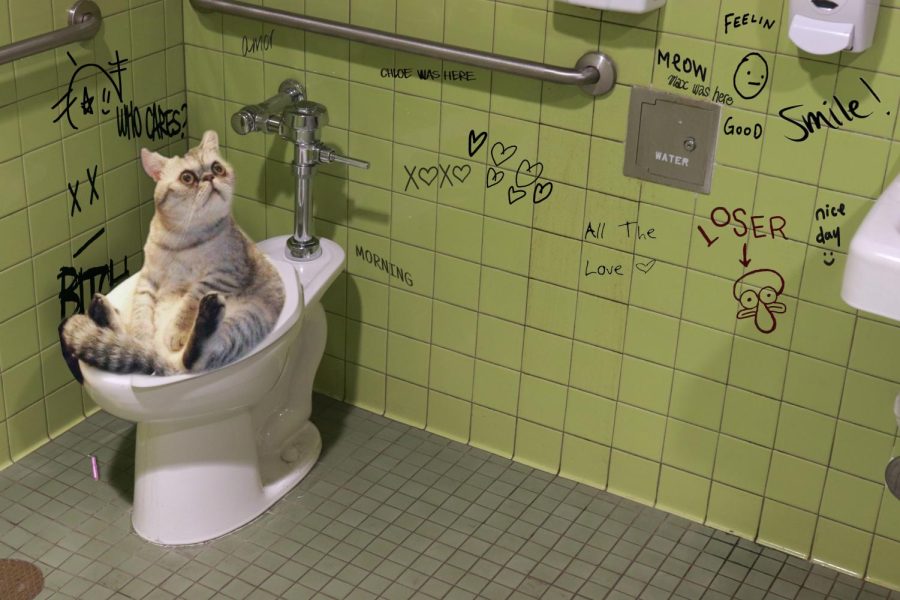Understanding Why Animal Waste Must Not Be Flushed Down the Toilet
Understanding Why Animal Waste Must Not Be Flushed Down the Toilet
Blog Article
The article following next about Should you flush animal waste down the toilet is seriously engaging. Don't skip it.

When it pertains to dealing with waste, particularly animal waste, lots of people typically consider the convenient alternative of flushing it down the bathroom. However, this apparently easy remedy can have major repercussions for the atmosphere and public health. In this post, we'll discover why flushing animal waste down the toilet is a negative concept and supply alternative techniques for correct disposal.
Introduction
Proper waste disposal is important for maintaining ecological sustainability and public health. While it might appear harmless to purge animal waste down the toilet, it can bring about numerous issues, both for the atmosphere and human well-being.
Risks of flushing pet waste
Ecological effect
Purging pet waste introduces dangerous bacteria and virus into waterways, which can adversely affect marine ecosystems. These pathogens can pollute water resources and injury aquatic life, interfering with fragile ecosystems.
Public health worries
Pet waste contains hazardous germs such as E. coli and Salmonella, which can present severe health threats to people. Purging pet waste down the toilet can contaminate water materials, bring about the spread of illness and infections.
Alternatives to flushing
Rather than flushing pet waste down the commode, there are a number of alternative disposal techniques that are a lot more eco-friendly and hygienic.
Composting
Composting pet waste is an eco-friendly means to take care of website it. By composting, raw material is broken down into nutrient-rich dirt, which can be utilized to feed gardens and plants.
Landfill disposal
Taking care of pet waste in a garbage dump is another alternative. While not as eco-friendly as composting, it is a safer option to flushing, as it prevents the contamination of water resources.
Family pet garbage disposal systems
There are specialized animal waste disposal systems readily available that safely and hygienically take care of animal waste. These systems typically utilize enzymes to break down waste and remove odors.
Actions to appropriate pet garbage disposal
To guarantee correct disposal of pet waste, follow these actions:
Scooping and nabbing waste
Frequently scoop and bag animal waste using naturally degradable bags. This avoids waste from contaminating the atmosphere.
Using assigned waste bins
Dispose of bagged pet waste in marked waste bins, such as garden compost containers or land fill bins. Stay clear of flushing it down the bathroom whatsoever costs.
Cleaning litter boxes and pet areas regularly
On a regular basis clean litter boxes and pet dog locations to prevent the build-up of waste and microorganisms. Usage pet-safe cleansing items to maintain hygiene.
Benefits of proper disposal methods
Embracing correct disposal approaches for animal waste provides a number of benefits:
Lowered environmental pollution
Correct disposal approaches lower the threat of environmental pollution, shielding waterways and communities from contamination
Minimized risk of water contamination.
By preventing flushing pet waste down the commode, the danger of water contamination is significantly lowered, guarding public health.
Boosted sanitation and hygiene
Correct disposal methods promote much better sanitation and hygiene, developing a much safer setting for both people and animals.
Final thought
In conclusion, flushing animal waste down the commode is harmful to the atmosphere and public health. By adopting different disposal methods and complying with correct waste administration techniques, we can decrease the adverse influence of pet waste and contribute to a cleaner, much healthier world.
What To Do With Dog Poo – The Do's And Don'ts Of Disposing Of Faeces
Dog poo bins
Some councils provide dedicated dog waste bins in popular dog-walking areas that can take dog poo that has been bagged but you can legally dispose of dog waste in any public litter bin, as long as it is securely bagged. This also applies to your wheelie bin at home.
Do not flush
Water companies do not recommend flushing dog faeces down the toilet because certain parasites can survive the water processing treatment and are potentially harmful to humans. You should also never consider flushing dog poo that has been bagged down the toilet as the bags will not break down and instead create severe blockages in the sewage system.
In the woods
The Forestry Commission promotes a ‘stick and flick’ method for dealing with waste in the woods. This means finding a stick and using it to flick any poo from off the path so that it is out of the way of other walkers. You could also bury it as long as it is not in an area where there might be livestock.
Livestock
Parasites found in dog poo can be transmitted to livestock if they inadvertently eat infected faeces that has been left on grazing land. This could result in the death of sheep or abortion in cattle so you should always make sure you pick up your dog’s waste in fields where livestock could be present.

On a regular basis clean litter boxes and pet dog locations to prevent the build-up of waste and microorganisms. Usage pet-safe cleansing items to maintain hygiene.
Benefits of proper disposal methods
Embracing correct disposal approaches for animal waste provides a number of benefits:
Lowered environmental pollution
Correct disposal approaches lower the threat of environmental pollution, shielding waterways and communities from contamination
Minimized risk of water contamination.
By preventing flushing pet waste down the commode, the danger of water contamination is significantly lowered, guarding public health.
Boosted sanitation and hygiene
Correct disposal methods promote much better sanitation and hygiene, developing a much safer setting for both people and animals.
Final thought
In conclusion, flushing animal waste down the commode is harmful to the atmosphere and public health. By adopting different disposal methods and complying with correct waste administration techniques, we can decrease the adverse influence of pet waste and contribute to a cleaner, much healthier world.
What To Do With Dog Poo – The Do's And Don'ts Of Disposing Of Faeces
Dog poo bins
Some councils provide dedicated dog waste bins in popular dog-walking areas that can take dog poo that has been bagged but you can legally dispose of dog waste in any public litter bin, as long as it is securely bagged. This also applies to your wheelie bin at home.
Do not flush
Water companies do not recommend flushing dog faeces down the toilet because certain parasites can survive the water processing treatment and are potentially harmful to humans. You should also never consider flushing dog poo that has been bagged down the toilet as the bags will not break down and instead create severe blockages in the sewage system.
In the woods
The Forestry Commission promotes a ‘stick and flick’ method for dealing with waste in the woods. This means finding a stick and using it to flick any poo from off the path so that it is out of the way of other walkers. You could also bury it as long as it is not in an area where there might be livestock.
Livestock
Parasites found in dog poo can be transmitted to livestock if they inadvertently eat infected faeces that has been left on grazing land. This could result in the death of sheep or abortion in cattle so you should always make sure you pick up your dog’s waste in fields where livestock could be present.

I ran across that page on Don't Flush Your Pets Poo Down The Loo, Vet Warns while scouting around the internet. Are you aware of somebody who is truly interested in the topic? Why not promote it. Kudos for your time. Come back soon.
Call Today Report this page